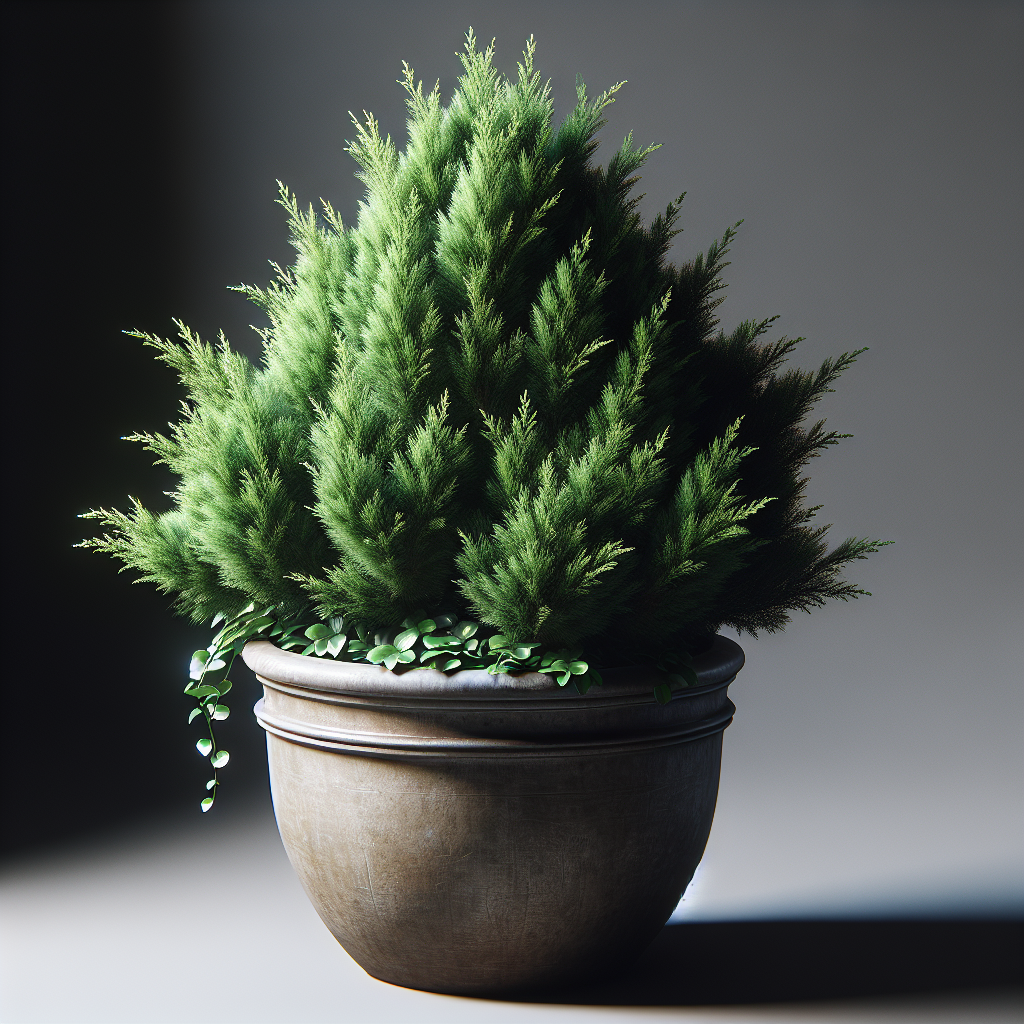Juniper Potted Plant Perfection
The juniper plant is a versatile and popular choice for potted plants due to its attractive evergreen foliage and easy care requirements. With over 50 different species of juniper plants to choose from, there is a wide variety of shapes, sizes, and colors to suit any space or style. Whether you are looking to add a touch of greenery to your home or office, or enhance your outdoor garden with a low-maintenance plant, the juniper is an excellent option.
In this article, we will discuss the various benefits of growing juniper plants in pots, as well as provide tips on how to care for them properly to ensure they thrive and remain healthy.
Benefits of Juniper Potted Plants
One of the main reasons why juniper plants make excellent potted plants is their adaptability. Junipers can thrive in both indoor and outdoor environments, making them a versatile choice for any setting. In addition, junipers are relatively low-maintenance plants that require minimal care compared to other types of houseplants.
Another benefit of growing junipers in pots is their ability to add visual interest to any space. With their unique shapes and textures, junipers can serve as focal points or accents in both indoor and outdoor settings. From small desktop specimens to large patio trees, there is a juniper plant for every size and style preference.
Additionally, junipers are known for their hardiness and ability to withstand various growing conditions. They are drought-tolerant plants that require little water once established, making them ideal for busy individuals who may not have time to tend to their plants regularly. Junipers also have few pest or disease issues, further contributing to their low-maintenance nature.
Tips for Caring for Juniper Potted Plants
While junipers are relatively easy to care for, there are still some key tips to keep in mind in order to ensure they thrive and remain healthy.
1. Choose the Right Pot: When selecting a pot for your juniper plant, be sure to choose one with good drainage holes at the bottom. Junipers do not like sitting in waterlogged soil, so it is important that excess water can drain freely from the pot.
2. Use Well-Draining Soil: Junipers prefer well-draining soil that is slightly acidic. A mix specifically designed for cacti and succulents works well for most juniper species.
3. Provide Adequate Light: Most junipers prefer full sun exposure but can tolerate partial shade as well. Place your potted juniper plant in a location where it will receive at least 6 hours of sunlight per day.
4. Water Appropriately: Water your potted juniper plant only when the top inch of soil feels dry to the touch. Overwatering can lead to root rot and other issues, so it is important not to let your plant sit in soggy soil.
5. Prune Regularly: To maintain the shape and size of your potted juniper plant, prune back any overgrown branches or dead foliage as needed. You can also trim your plant into various shapes or designs if desired.
6. Fertilize Sparingly: Junipers do not require frequent fertilization but can benefit from an occasional dose of slow-release fertilizer during the growing season.
7. Monitor for Pests and Diseases: While junipers are relatively pest-resistant, it is still important to keep an eye out for common issues such as spider mites or scale insects. Treat any infestations promptly with insecticidal soap or neem oil.
By following these simple tips for caring for your potted juniper plant, you can enjoy its beauty and benefits year-round!
In conclusion, growing a juniper plant in a pot offers numerous benefits such as adaptability, visual interest, low maintenance requirements, hardiness, and drought tolerance. By choosing the right potting materials, providing adequate light and water conditions, regular pruning maintenance along with occasional fertilization schedules ensuring proper monitoring against pests infestations enabling optimal growth conditions needed by these beautiful ornamental plants! Remember that each species may have its own specific care requirements so be sure you know which type you have before planting! With proper care and attention given these amazing evergreens will flourish indoors or outdoors adding beauty wherever they’re placed!













